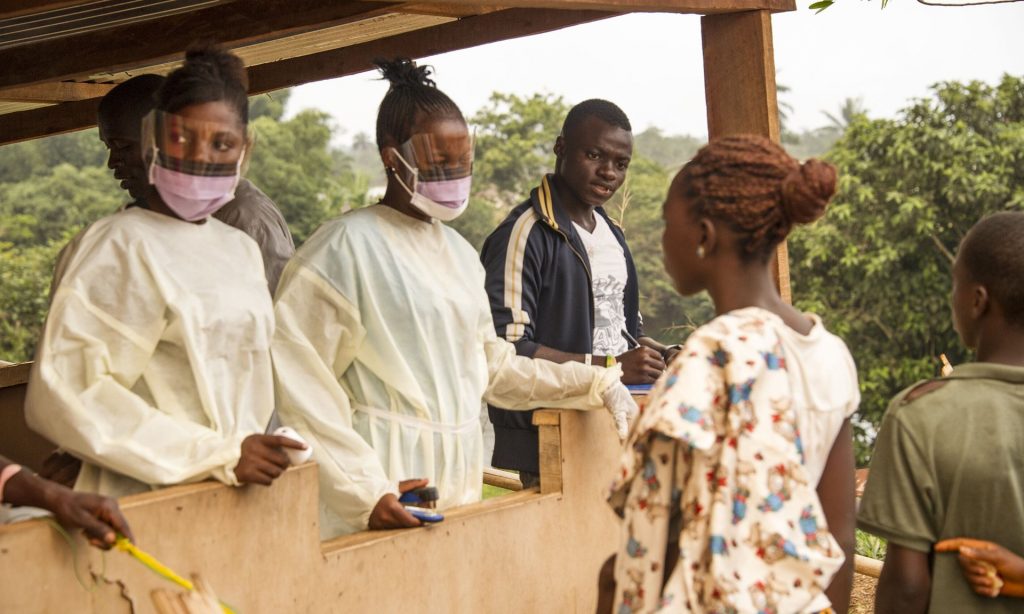While Ebola, Zika and yellow fever may seem like distant threats to most people living in the developed world, the lessons from these global crises should resonate across health services in all countries.
At the G7 meeting in Ise-Shima, Japan, and the world health assembly in Geneva this week, world leaders and health policymakers have a prime opportunity to take action. They need to lead the way in shaping health systems that can cope with both public health emergencies and the longer-term challenges of ensuring access to affordable health services for all.
The Ebola outbreak in west Africa highlighted the magnitude of challenges in poor countries. It brought to the fore the complexity of maintaining quality, such as adequate infection control; the importance of sufficient numbers of motivated doctors and nurses; the need for coordination between health and other sectors; and the importance of citizen trust in health systems.
In Liberia, there were fewer than 100 doctors at the time of the outbreak and only about 1,400 nurses and midwives for a population of more than 4 million. Initially, people hid Ebola victims both because they did not understand the disease, but also because they did not trust the authorities.
It was only through mobilising a larger health workforce, including professionals from outside the affected region as well as lesser-trained practitioners and community health workers, and through concerted efforts to regain the trust of communities that the epidemic was eventually effectively addressed.
Among the measures taken were efforts to involve the community in building trust between those working in the health system and those who use it.
These challenges may seem particularly germane to poorer and fragile countries, but similar trials plague more affluent health systems.
Notably, Europe is struggling to deal with rising levels of obesity and chronic diseases. As the recent junior doctors’ strikes in the UK demonstrate, there is a need to maintain a skilled and motivated workforce. Many countries will also need to increase their reliance on other healthcare professionals (pdf), such as nurses. Creating a system that also focuses on engaging communities in healthy living is critical.
Health services need to be transformed so that they truly put patients and their families at the centre, through enhancing homecare programmes, better educating patients and taking account of their preferences, and connecting them to other social services. Evidently, the biggest challenge of all is not just how to finance care, but how to organise and deliver quality health services for all communities.
Investing in health is not cheap, but it is not a luxury. Liberia spends less than $100 (£68) per capita annually on preventive, promotive and curative health services, yet more than $1.5bn was mobilised for reacting to the Ebola response. In high-income countries, the costs of providing medical treatment for the chronically ill will be prohibitive unless prevention and primary care can be strengthened.
This week, the World Health Organisation is tabling its first global framework on integrated and people-centered health services (pdf).
In November, the global symposium on health systems research will focus on how to build resilient and responsive health systems. But for accelerated action, we need political commitment, money and better knowledge.
The G7 can help build the political commitment necessary to overcome inevitable resistance to change at the country-level, enhance investments in strengthening health systems, and help build relevant and timely knowledge bases. While political commitment to the goal appears to be growing, in practice there remain many challenges.
We urge those meeting in Geneva and Ise-Shima this week to tackle these global health challenges by thinking beyond financing, and asking how can we organise and deliver quality health services to all communities. By making health systems more resilient, we will also be able to respond more quickly and effectively to new disease outbreaks, and other future health emergencies.
- Sara Bennett, from Johns Hopkins University, is chair of Health Systems Global and Edward Kelley, from the World Health Organisation, co-chairs the quality in universal health and healthcare thematic working group of Health Systems Global

